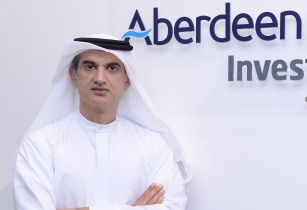In spite of positive news for markets globally from the likely COVID-19 vaccines, sentiment in the GCC remains cautiously optimistic, according to Aberdeen Standard Investments (ASI)
Emirates NBD?s latest monthly insights predicts recovery in 2021 to be slower and uneven compared with many developed markets. This stems from governments across the region providing liquidity via central banks, rather than directing fiscal stimulus into households and businesses.
The report forecasts only a modest rebound in oil prices over the next 12 months ? with Brent oil to average US$50 per barrel in 2021 ? well below the budget break-even price in GCC countries.
Edris Alrafi, head of the Middle East and Africa for Aberdeen Standard investments (ASI), said, ?Based on measures to date, such as hikes in tax on goods and services in Saudi Arabia, or efforts in Oman to boost revenue and reduce budget spending, it seems the general priority in the region will be deficit reduction, not growth.?
However, the UAE offers greater scope than most of its neighbours for expansionary fiscal policy in the shorter term. Evidence of this includes structural reforms such as extending visa schemes and allowing 100% foreign ownership for onshore companies in some sectors ? with the goal of luring and retaining expats, plus attracting private sector investment.
Edris continued, ?Amid various opportunities, there is a bright fintech future, given that the UAE has created a dedicated Minister of State for Digital Economy and AI, and allocated a cyber security chief. Innovation and technology have been identified as key enablers of Abu Dhabi?s vision for growth, while state-owned Mubadala Investment Company has made a series of strategic investments in sectors such as technology and renewable energy.
?More broadly, there is good reason for optimism about the UAE?s overall creditworthiness. In terms of public finances, for instance, Abu Dhabi offers an unconditional guarantee for the timely service of the federal government's debt.
?At the same time, supportive structural features include the focus on eradicating oil dependence, strengthening governance in the business environment and maintaining strong fiscal and external balance sheets.?
The Public Investment Fund (PIF) was awarded another US$40bn in government reserves in the first half of 2020 to tap into various opportunities. Investments have ranged from Uber to Softbank?s Vision Fund to electric carmaker Lucid Motors to Disney. PIF also favours the hydrocarbons industry, taking stakes in oil giants BP, Total and Shell.
In recent months, efforts have been underway across the GCC to diversify supply chains to prevent overreliance on foreign suppliers. This has fostered stronger regional ties ? including the adoption of a Kuwaiti proposal to create a joint food supply network across the GCC. Special arrangements at borders and customs posts have ensured the flow of basic food and medical supplies within the six-member alliance.






